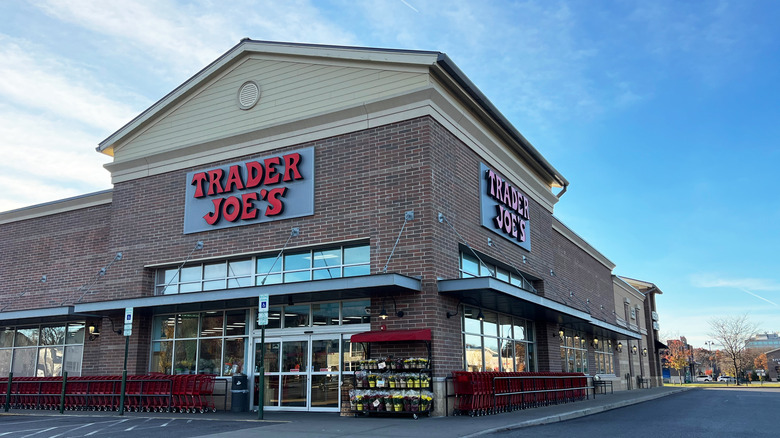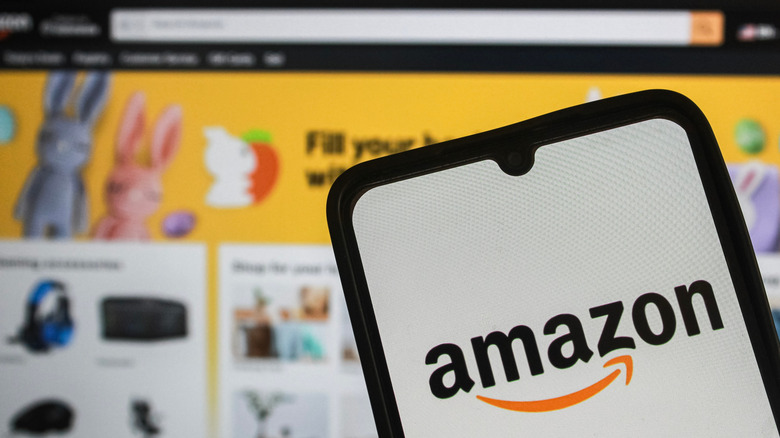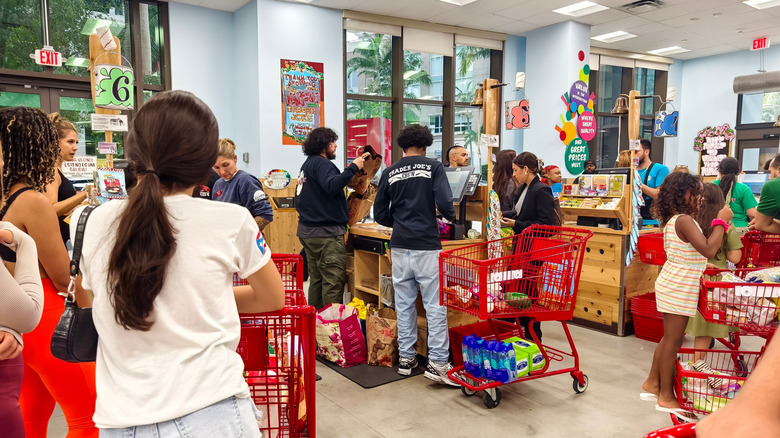You've Been Warned: Buying Trader Joe's Products On Amazon Will Cost You
Trader Joe's has become a fan-favorite among millennials and members of Generation Z, known for its affordable prices and cult-favorite items like pork dumplings, dark chocolate peanut butter cups, and eggs that often cost less than the national average. The store is a staple for many shoppers across the U.S. While the chain has grown to over 600 locations nationwide, many states and geographical areas are underserved by Trader Joe's.
With its limited access, many have turned to the e-commerce giant Amazon in hopes of trying Trader Joe's products and experiencing the hype for themselves. But in doing so, many are discovering the steep markups these products are fetching — like a two-pack of its chili and lime tortilla Chips selling for $12, or its popular facial sunscreen dupe going for nearly double its in-store price. Given Trader Joe's reputation for low prices, what's driving these markups? Let's take a closer look.
Why Trader Joe's products are sold on Amazon
First, it's important to know that Trader Joe's itself does not sell its products on Amazon. In fact, the company has no e-commerce storefront. Instead the company chooses to sell exclusively through its brick-and-mortar stores, as it believes doing so provides a better shopping experience for customers.
That means any Trader Joe's branded products on Amazon or other storefronts are sold by third-party sellers. Many of these sellers specialize in sourcing popular items in bulk and selling them online. While their intentions might not be to overinflate their prices, listing items on Amazon and other storefronts comes with added expenses, including warehouse and fulfillment fees as well as advertising costs.
To not lose money on their business, third-party sellers will bake those fees into the cost of the item. So that $3 bag of tortilla chips might sell for $6 to cover business expenses. Ultimately, the customer ends up paying a premium for the convenience of online shopping.
Why Trader Joe's isn't a fan of third-party sellers
Trader Joe's is very committed to its brand as a neighborhood grocery store, and paired with its decision to sell in stores, it's safe to say the company is not a fan of e-commerce or third-party sellers. In fact, it even discourages people from buying from resellers, stating "if you see TJ's products for sale online, you'll know right away that you're not buying from Trader Joe's," on its FAQs page. In one well-known case, Trader Joe's took legal action against a resale store called Pirate Joe's that imported its branded products and sold them to customers in Canada, citing trademark infringement.
The company's decision to stick with an in-store model may be frustrating for many living far from a Trader Joe's location. But as the company continues to rapidly expand, more shoppers may soon get to experience its offerings and avoid third-party markups altogether. Until then, shoppers buying Trader Joe's products online will have to weigh whether the price for convenience is truly worth the cost.


